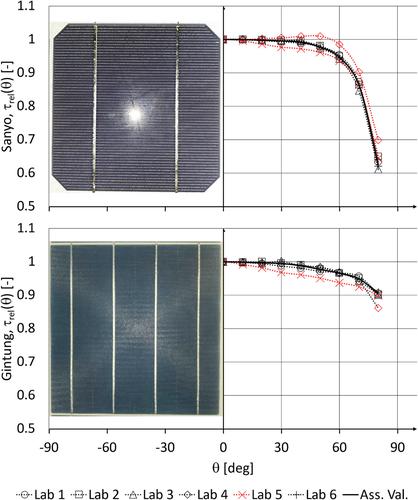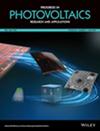Incidence Angle Effect: Validation of New Measurement Methods for IEC 61853-2
IF 7.6
2区 材料科学
Q1 ENERGY & FUELS
引用次数: 0
Abstract
The incidence angle effect causes a decrease in the photogenerated current of PV modules when they are subject to incident irradiance at wide angles: Its relevance should be quantified for accurate energy yield purposes and has recently gained significance due to the rising interest in novel integrated PV applications, where vertical or nonoptimal tilt are favored (e.g., in urban structures, in agrivoltaics, and vehicles). The international standard IEC 61853-2 presents both outdoor and indoor measurement methods: However, the indoor measurement method for commercial-size modules is often impractical due to irradiance uniformity limitations on the volume spanned by the tested module upon rotation in most of the solar simulators available on the market. In recent years, new solutions have been proposed to overcome these limitations and allow wider adoption of this standard: However, method validations and interlaboratory comparisons have been conducted so far only on small-area samples, and a real validation on commercial-size modules is still missing. In this work, we aim at filling this gap, reporting the results of an interlaboratory comparison conducted within the international project team that is currently working at the new edition of IEC 61853-2. The results show a remarkable agreement between different measurement methods, thus validating more options for the evaluation of this important effect.

入射角效应:IEC 61853-2 新测量方法的验证
当光伏组件受到大角度入射辐照时,入射角效应会导致光生电流下降:由于人们对新型集成光伏应用的兴趣日渐浓厚,入射角效应在垂直或非最佳倾斜(如城市建筑、农用光伏和车辆)情况下变得越来越重要。国际标准 IEC 61853-2 提出了室外和室内测量方法:然而,由于市场上大多数太阳能模拟器在旋转时对被测模块所跨区域的辐照度均匀性有限制,因此商用尺寸模块的室内测量方法往往不切实际。近年来,人们提出了新的解决方案来克服这些限制,使这一标准得到更广泛的采用:然而,迄今为止,方法验证和实验室间比较仅在小面积样品上进行,而对商用尺寸模块的真正验证仍未进行。在这项工作中,我们旨在填补这一空白,报告了目前正在开发 IEC 61853-2 新版本的国际项目组内部进行的实验室间比对结果。结果表明,不同测量方法之间存在显著的一致性,从而为评估这一重要影响提供了更多选择。
本文章由计算机程序翻译,如有差异,请以英文原文为准。
求助全文
约1分钟内获得全文
求助全文
来源期刊

Progress in Photovoltaics
工程技术-能源与燃料
CiteScore
18.10
自引率
7.50%
发文量
130
审稿时长
5.4 months
期刊介绍:
Progress in Photovoltaics offers a prestigious forum for reporting advances in this rapidly developing technology, aiming to reach all interested professionals, researchers and energy policy-makers.
The key criterion is that all papers submitted should report substantial “progress” in photovoltaics.
Papers are encouraged that report substantial “progress” such as gains in independently certified solar cell efficiency, eligible for a new entry in the journal''s widely referenced Solar Cell Efficiency Tables.
Examples of papers that will not be considered for publication are those that report development in materials without relation to data on cell performance, routine analysis, characterisation or modelling of cells or processing sequences, routine reports of system performance, improvements in electronic hardware design, or country programs, although invited papers may occasionally be solicited in these areas to capture accumulated “progress”.
 求助内容:
求助内容: 应助结果提醒方式:
应助结果提醒方式:


